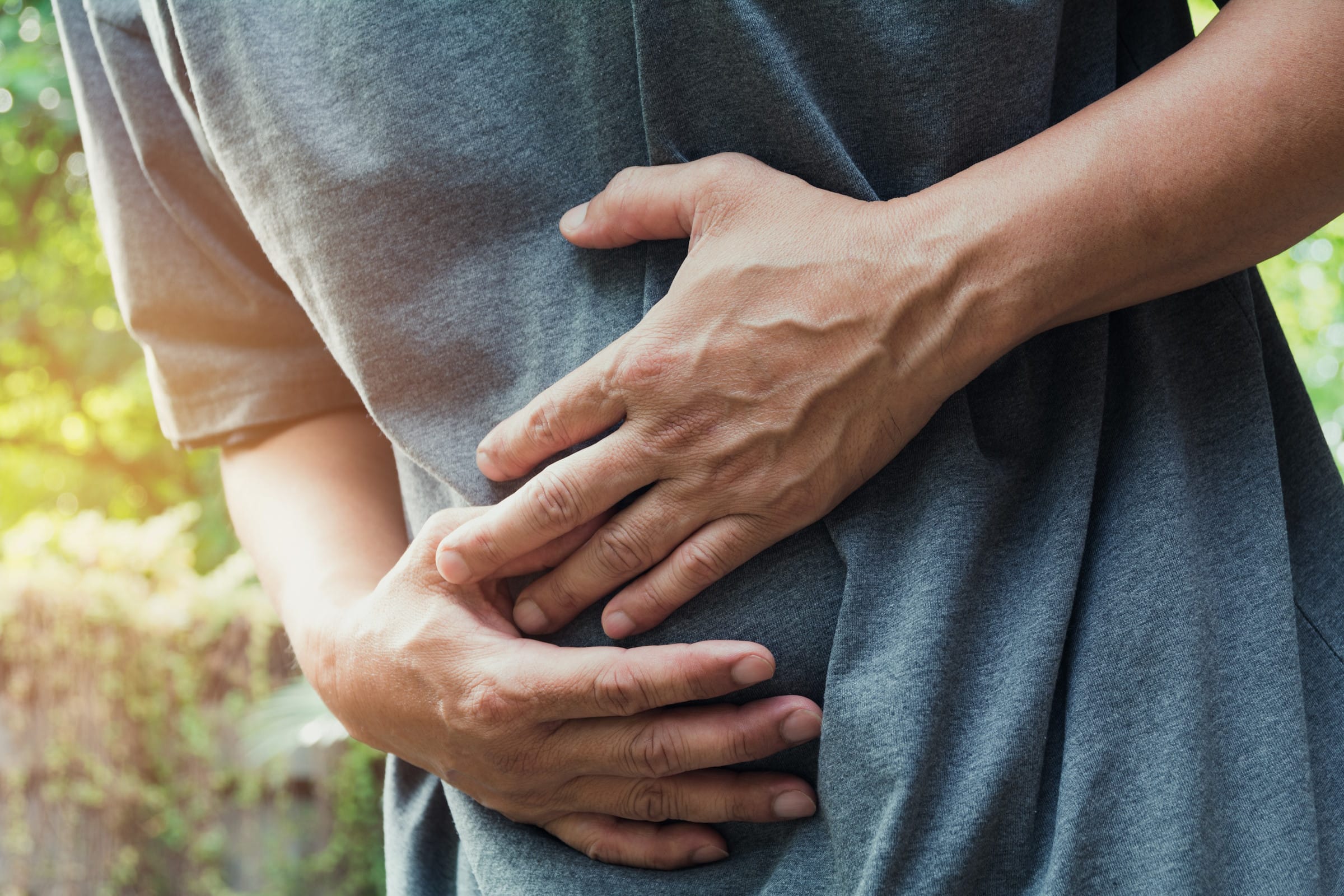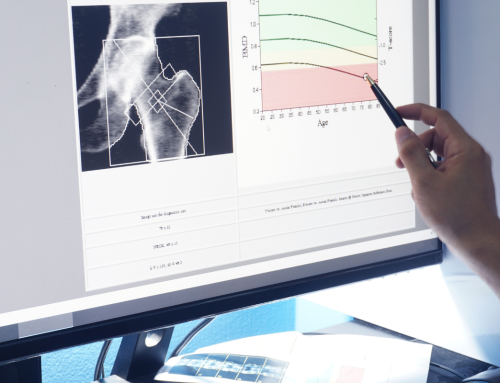
Maintaining strong, healthy bones is essential for preventing conditions like osteoporosis and ensuring overall health as we age. While many of us know the importance of diet and exercise in bone health, fewer people know that gut health can significantly impact our bone density. This surprising connection is gaining attention in the scientific community, revealing how a balanced gut can lead to stronger bones. In this blog post, we'll explore the relationship between gut health and bone density, offering practical tips for improving both.
Understanding the Gut-Bone Axis
The "gut-bone axis" refers to the intricate relationship between our gut microbiome and bone health. This connection is mediated through hormonal and immune pathways, showing that a healthy gut can positively influence bone metabolism. Recent studies have highlighted this link, suggesting that maintaining a balanced gut microbiome is crucial for bone strength.
One compelling statistic that underscores the gut-bone connection is that individuals with optimal gut microbiota diversity are shown to have up to 25% higher bone mineral density (BMD) than those with less diverse microbiomes. This highlights the crucial role that gut health plays in supporting bone strength and minimizing the risk of osteoporosis. Fostering a diverse and balanced gut microbiome can significantly impact bone health and overall well-being.
Hormonal Pathways
The gut microbiome regulates hormones essential for bone health. Certain gut bacteria can influence vitamin D production, a hormone critical for calcium absorption and bone formation. An imbalance in gut bacteria can disrupt this process, leading to weaker bones.
Immune Pathways
The immune system also mediates the gut-bone axis. A healthy gut microbiome supports a balanced immune response, reducing systemic inflammation that can negatively affect bone health. Chronic inflammation, often originating in the gut, is linked to increased bone resorption and decreased bone mineral density.
Nutrient Absorption and Bone Health
Our gut absorbs essential nutrients necessary for bone health, including calcium, vitamin D, and magnesium. A healthy gut ensures efficient absorption of these nutrients, directly supporting bone mineral density.
When the gut is imbalanced or unhealthy, it can hinder nutrient absorption. Conditions like leaky gut syndrome or dysbiosis can impair the gut lining, making it difficult for essential nutrients to enter the bloodstream. Over time, this can lead to bone loss and a higher risk of fractures.
Focus on maintaining a healthy gut to support nutrient absorption. Incorporate various fibre-rich foods, probiotics, and prebiotics into your diet. These elements help balance the gut microbiome, ensuring efficient nutrient absorption and stronger bones.
The Link Between Gut Inflammation and Bone Health
Gut inflammation can lead to systemic inflammation throughout the body. This chronic inflammation is a significant risk factor for bone loss, as it accelerates bone resorption and weakens bones over time.
Chronic inflammation, originating in the gut, contributes to conditions like osteoporosis by disrupting the balance between bone formation and resorption. This imbalance leads to decreased bone mineral density and a higher risk of fractures.
To protect your bones, it's crucial to reduce gut inflammation. Adopting a diet rich in anti-inflammatory foods, such as fruits, vegetables, and omega-3 fatty acids, can help. Probiotics and prebiotics can also support a healthy gut microbiome, reducing inflammation and promoting bone health.
Enhancing Bone Health with Probiotics and Prebiotics
Probiotics are beneficial bacteria that support a healthy gut microbiome, while prebiotics are non-digestible fibres that feed these good bacteria. Together, they play a crucial role in maintaining gut health and, consequently, bone health.
Benefits of Probiotics
Probiotics, found in foods like yogurt and supplements, can strengthen gut health, enhance nutrient absorption, and reduce gut inflammation. Research shows that probiotics can improve bone strength and reduce bone loss, making them a valuable addition to your diet.
Benefits of Prebiotics
Prebiotics, found in fibre-rich foods like bananas, onions, and garlic, promote the growth of beneficial gut bacteria. By supporting a balanced gut microbiome, prebiotics indirectly contribute to bone health by enhancing nutrient absorption and reducing inflammation.
The Risks of an Unhealthy Gut on Bone Health
Gut-related disorders such as Irritable Bowel Syndrome (IBS), leaky gut syndrome, and dysbiosis can negatively impact bone density. These conditions impair nutrient absorption and trigger inflammatory responses that harm bones.
If left untreated, gut disorders can lead to significant bone loss over time. Chronic nutrient deficiencies and persistent inflammation increase the risk of osteoporosis and fractures, emphasizing the importance of addressing gut health issues promptly.
Early intervention is critical to preventing the long-term effects of gut disorders on bone health. Regular check-ups, a balanced diet, and appropriate treatments can help manage gut conditions and protect your bones.
Improving Gut Health to Support Bone Density
Achieving optimal bone density necessitates more than just attention to diet and exercise; it requires a holistic approach that includes maintaining a healthy gut. A robust gut microbiome plays an essential role in nutrient absorption, inflammation regulation, and overall immune support—factors intricately linked to bone health.
This section will explore strategies to enhance gut health and bone density by diving into the significance of dietary changes, supplementing crucial nutrients, and managing lifestyle habits. By targeting these three focus areas, we provide comprehensive insights into strengthening the gut-bone axis and paving the way for improved overall health and resilience.
Diet Adjustments
Adopting a gut-friendly diet is one of the best ways to support both gut and bone health. Focus on whole grains, fibre-rich fruits and vegetables, and lean proteins. Limiting processed foods and sugars can also improve gut health and nutrient absorption.
Supplements for Gut and Bone Health
Consider adding supplements like calcium, vitamin D, and probiotics to your routine. These supplements can support both gut and bone health, ensuring you get the nutrients you need for strong bones.
Gut-Friendly Lifestyle Habits
Certain lifestyle habits, in addition to diet and supplements, can benefit both the gut and bones. Regular physical activity, adequate hydration, and stress reduction techniques can all contribute to a healthier gut and stronger bones.
In the intricate dance between gut health and bone health, it's clear that fostering a healthy gut is foundational to ensuring robust bones. By embracing a proactive approach that prioritizes nutrient-rich diets, beneficial supplements, and a balanced lifestyle, you empower your body to defend against bone-related ailments naturally. This holistic focus preserves bone density and enhances your overall well-being, fortifying your body's resilience against various health challenges.
As you navigate the journey of maintaining your health, remember that small adjustments can lead to significant impacts. By taking intentional steps today, you pave the way for a stronger, healthier tomorrow—underscoring the timeless importance of the gut-bone connection.
Taking a Holistic Approach to Stronger Bones
Maintaining optimal bone health requires a multifaceted approach incorporating diet, lifestyle, and cutting-edge technology such as the Marodyne LiV device. This innovative device promotes bone health by delivering low-intensity vibrations that stimulate bone cells and enhance bone density.
You can significantly strengthen your skeletal system by integrating the Marodyne LiV device into your bone health regimen and nurturing gut health.
As you continue on this journey, remember that leveraging advanced tools and maintaining a holistic approach is key to enduring bone strength and well-being. Contact us to learn more about the device that can support your skeletal health.
What surprised you about the connection between gut health and bone density? What do you do to support your gut health? Share your thoughts with our readers in the comments below.




 Black Friday → Christmas Sale! Save $300 + Free Shipping
Black Friday → Christmas Sale! Save $300 + Free Shipping 